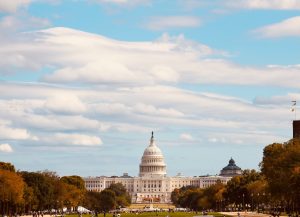House Passes Federal Marijuana Legalization Bill
The U.S. House of Representatives has passed a federal bill that would decriminalize marijuana at the federal level. It’s a sweeping measure that expressly strives to address racial inequality of drug law enforcement, though the impact could be much broader – that is, if it had a realistic shot at passing in the Senate. Our Los Angeles marijuana lawyers and most Washington insiders agree the bill is likely to falter in the Senate. 
The Marijuana Opportunity Reinvestment and Expungement Act (or MORE Act) would remove cannabis from the list of U.S. controlled substances. It would also expunge lower-level federal marijuana arrests and convictions and provide incentives for minority-owned cannabis businesses in a market that has been expanding rapidly in recent years – not just in California, but throughout the country. Additionally, it would establish an excise tax on marijuana sales, allowing that money to be funneled into areas that were particularly hard-hit by the failed war on drugs.
The measure was largely approved along party lines, though five Republican representatives and one independent joined Democrats in passing the bill. Half a dozen Democrats voted against it. NPR quoted the bill’s sponsor as saying federal action on the issue is an imperative, given that the majority of states plus Washington, D.C. have recognized medical cannabis as legal and 15 allow its sale and possession for adult recreational use. Those who voted in favor of the bill say it is long overdue, particularly as so many of the arrest and sentencing laws have placed an unfair burden on minority and low-income communities. Research conducted by the ACLU has established that people of color are four times more likely to be arrested for possession of marijuana than their White counterparts, despite evidence these groups use the substance in equal measure. Federal estimates are that some 22 million Americans regularly use marijuana.
Republicans stood sharply opposed to the measure, saying those who break the law shouldn’t be eligible for early release. They also alleged legalization would lead to a surge of road injury and deaths caused by drivers impaired by marijuana. Evidence of a correlation between legalization and impaired driving crashes is conflicting.
There is, however, hard evidence that marijuana laws are selectively enforced, a fact that is known to ruin lives. Despite this, one Republican called the marijuana bill a “silly distraction,” given that passing it is such a long shot and Congress has yet to approve another coronavirus economic relief bill. Supporters of the MORE Act say the impact of marijuana prohibition is very real, and in some communities, has led to “tragedy.”
Even so, the vote was largely seen as symbolic.
At this juncture, the patchwork of marijuana laws has led to a paradigm where marijuana is either socially acceptable or it’s criminal, depending on the state and sometimes even the neighborhood where one is located. Advocates of the measure consider it an important justice initiative.
Even if the bill doesn’t gain sufficient momentum this session, there is some hope meaningful action could take place sometime in the next four years. President-elect Joe Biden has expressly called for marijuana decriminalization and expunging marijuana possession convictions. Decisions regarding recreational use, he said, should be left to the states.
The Los Angeles CANNABIS LAW Group represents growers, dispensaries, ancillary companies, patients, doctors and those facing marijuana charges. Call us at 949-375-4734.
Additional Resources:
House passes marijuana decriminalization bill, Dec. 5, 2020, By Grace Segers, CBS News
 Cannabis Law Group's Medical Marijuana Legal Blog
Cannabis Law Group's Medical Marijuana Legal Blog




